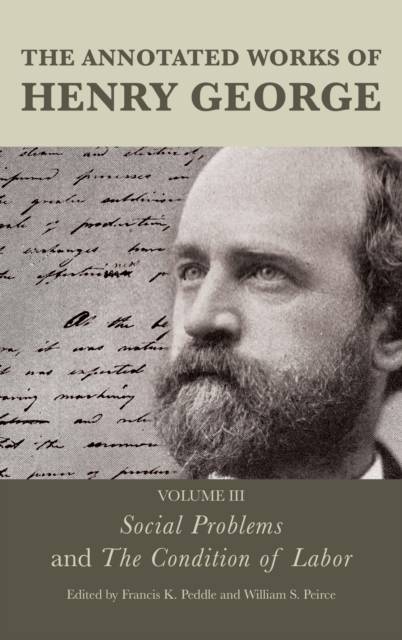
- Afhalen na 1 uur in een winkel met voorraad
- Gratis thuislevering in België vanaf € 30
- Ruim aanbod met 7 miljoen producten
- Afhalen na 1 uur in een winkel met voorraad
- Gratis thuislevering in België vanaf € 30
- Ruim aanbod met 7 miljoen producten
Zoeken
The Annotated Works of Henry George
Social Problems and the Condition of Labor
€ 246,95
+ 493 punten
Omschrijving
This is the first fully annotated edition of Social Problems (1883) and The Condition of Labor (1891), two important works by one of America's most popular social economists. Social Problems grew out of a series of articles Henry George (1839-1897) published in Frank Leslie's Illustrated Newspaper titled, "Problems of Our Times." In his passionate, journalistic style, George described in graphic detail the horrific conditions facing large sections of the American people and how, by returning to first principles, society could remedy these conditions for current and future generations. The Condition of Labor takes the form of an open letter to Pope Leo XIII in response to the pontiff's famous encyclical, Rerum Novarum. Echoing the religious themes dominant throughout all of his works, George argued that poverty is not part of God's natural order and therefore, could be eradicated through political action. Both Social Problems and The Condition of Labor demonstrate George's deep commitment to the reconciliation of ethics and economics in such a way that makes the world richer ethically and better off economically.
Specificaties
Betrokkenen
- Uitgeverij:
Inhoud
- Aantal bladzijden:
- 432
- Taal:
- Engels
- Reeks:
- Reeksnummer:
- nr. 3
Eigenschappen
- Productcode (EAN):
- 9781683931522
- Verschijningsdatum:
- 20/08/2018
- Uitvoering:
- Hardcover
- Formaat:
- Genaaid
- Afmetingen:
- 157 mm x 231 mm
- Gewicht:
- 798 g

Alleen bij Standaard Boekhandel
+ 493 punten op je klantenkaart van Standaard Boekhandel
Beoordelingen
We publiceren alleen reviews die voldoen aan de voorwaarden voor reviews. Bekijk onze voorwaarden voor reviews.










